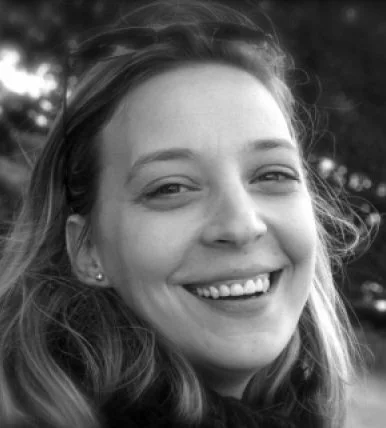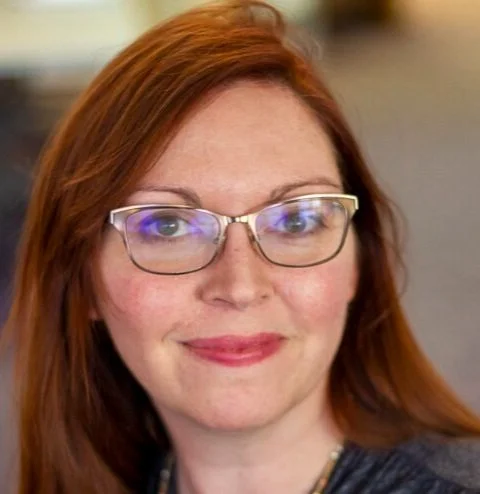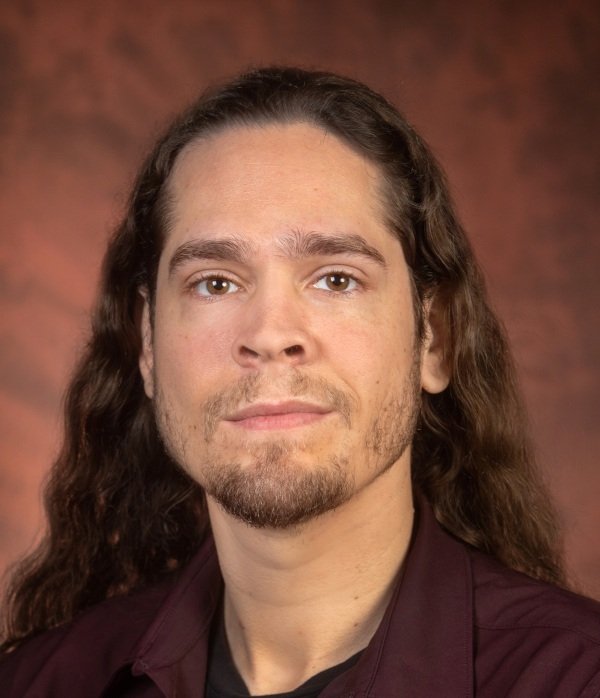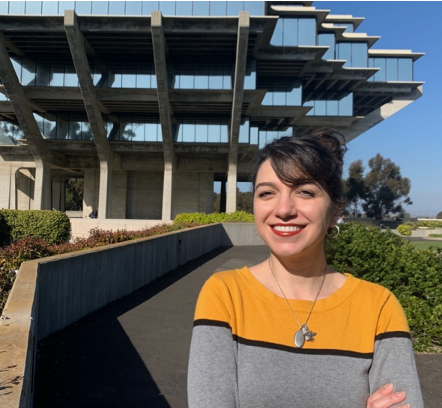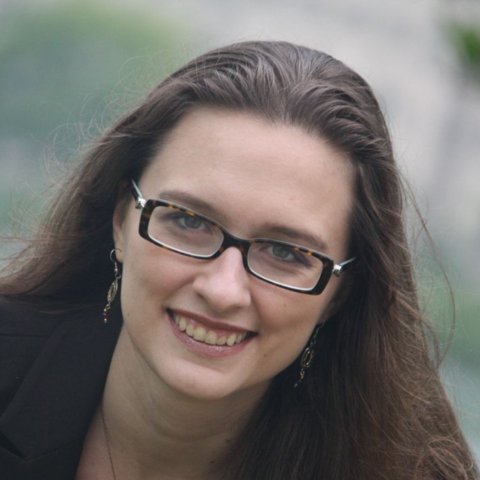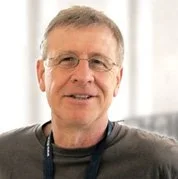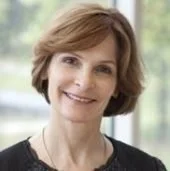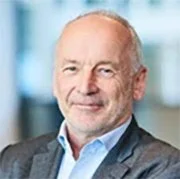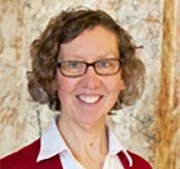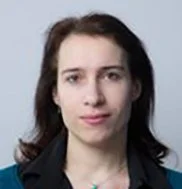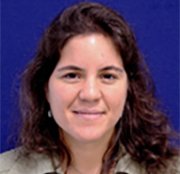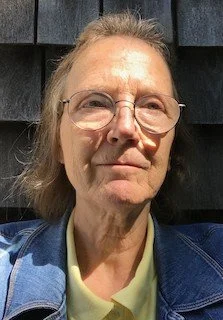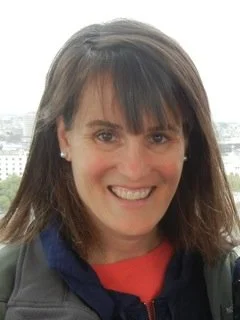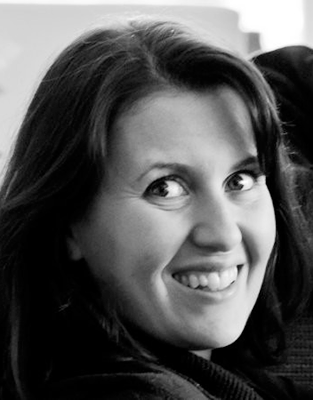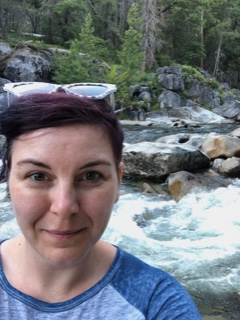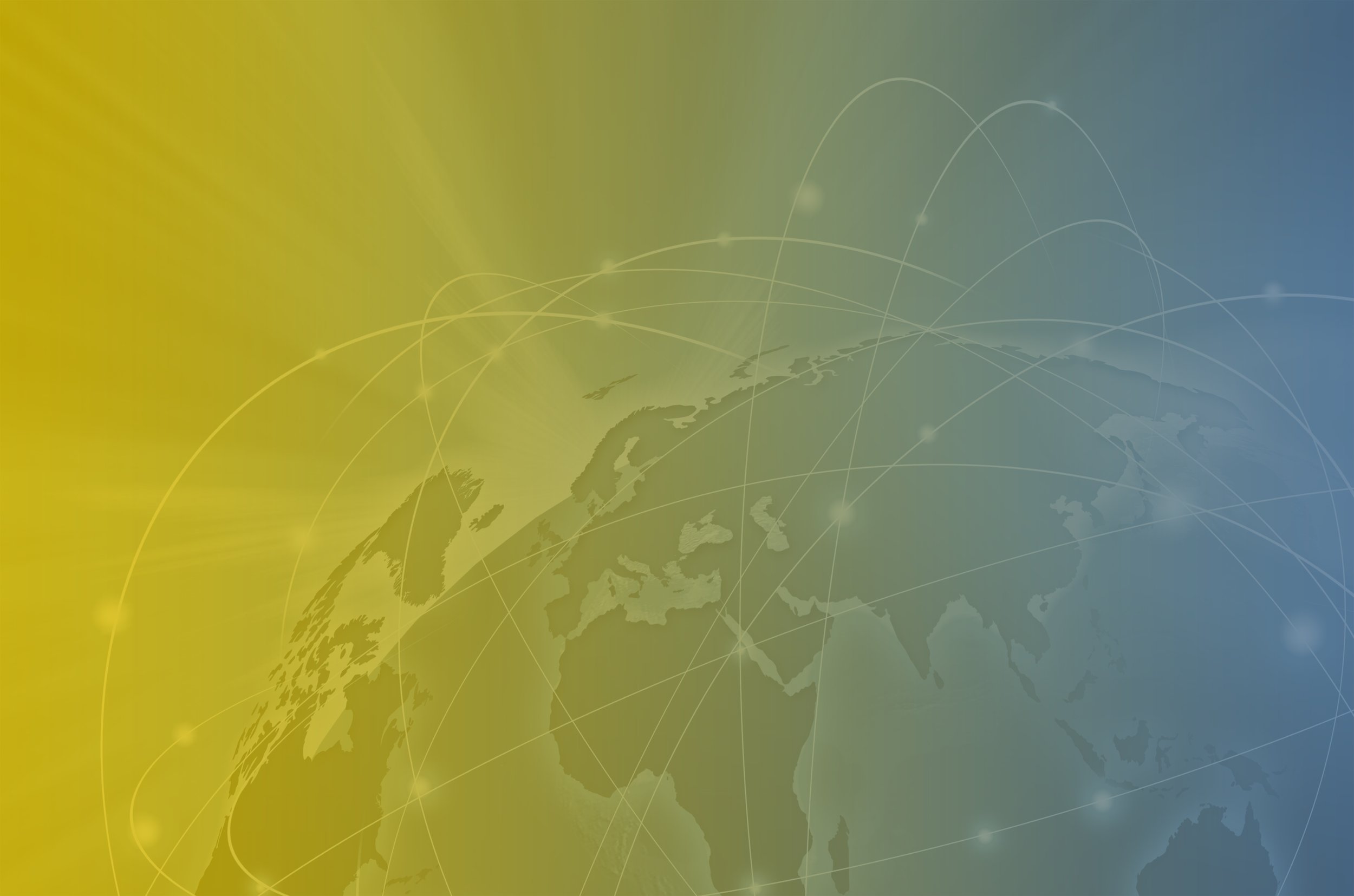
Events
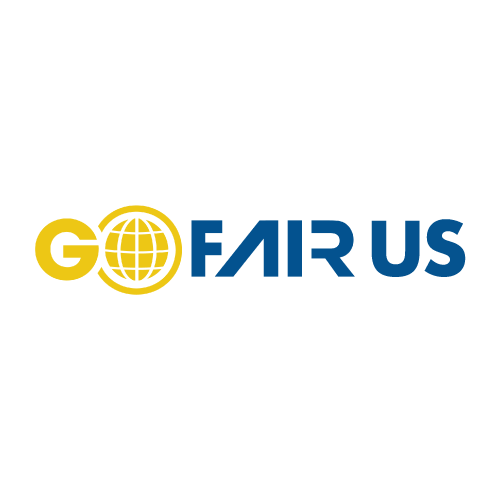
Join GO FAIR US @ AGU | Deadline Oct. 22nd
Call for data stewards, FAIR enthusiasts, and others in the GO FAIR US community, especially early career researchers, to join us in San Francisco for the American Geophysical Union (AGU). GO FAIR US will be part of the Open Science pavilion. Participants will meet with the AGU community in our booth to discuss FAIR and related open science topics. The AGU Annual Meeting 2023 is in San Francisco, CA, Dec 11-15, 2023.
To apply, please complete this application form by Sunday, October 22nd. Feel free to forward this application to others in the US FAIR community, especially data stewards and early career researchers that may be interested! Let us know if you have any questions.

Strategies for Machine Learning Reproducibility
This AI reproducibility webinar series presented by FARR will kickoff with a focus on ML reproducibility. Dr. Odd Erik Gundersen and Kevin Coakley will highlight the sources that can lead to unintentional irreproducibility. In this webinar, you will learn valuable insights and practical ideas to help achieve reproducibility in machine learning research. Additionally, you will gain a solid grasp of the common pitfalls that can undermine the reproducibility of your research. Join us on August 22nd at 8AM PT. Register here!
Odd Erik Gundersen is an adjunct associate professor at the Norwegian University of Science and Technology (NTNU) in Trondheim, Norway, where he teaches courses and supervises master students in AI. He received his PhD from the Norwegian University of Science and Technology. Gundersen has applied AI in the industry, mostly for startups, since 2006. He has conducted several analyses of reproducibility in the artificial intelligence and machine learning literature, and has developed guidelines for reproducibility in data science. Currently, he investigates how AI can be applied in the renewable energy sector and for driver training.
Kevin Coakley is a Senior Systems and Cloud Integration Engineer at the San Diego Supercomputer Center, UC San Diego where he supports the cloud infrastructure for multiple projects. Kevin’s research interest is in Computer Science where he focuses on reproducibility in Machine Learning.

Identify and track your research projects with the Research Activity Identifier (RAiD)
Join us for a webinar on RAiD by Shawn Ross, Australian Research Data Commons (ARDC) and GO FAIR US.
RAiD provides persistent, unique and resolvable identifiers for research projects and records descriptive information about the project activities.
RAiD acts as a metadata envelope that records time/date stamped persistent identifiers for funders/grants, organizations/institutions, collaborators/contributors, articles/data/software, and resources/tools/services.
RAiD can help researchers and research institutions identify research projects and keep track of project activities, eg who is involved, who funded the project, what outputs they produce, and even what tools they use.
RAiD is a not-for-profit service delivered by the ARDC. The RAiD service is available to use now and is also undergoing rapid technical development to enable it to scale internationally.

National Science Data Fabric (NSDF) Webinar: Distinguished Speaker - Dr. Ana Persic, UNESCO
On Tuesday May 23, 2023, at 8 AM PT / 9 AM MT / 10 AM CT / 11 AM ET / 5 PM CES, Dr. Ana Persic will be speaking at “The Pathway to Implementing the UNESCO Recommendation on Open Science” webinar.
The United Nations Educational, Scientific, and Cultural Organization (UNESCO) led a consultative and collaborative process to develop an international standard-setting instrument on open science in the form of a UNESCO Recommendation on Open Science, which was adopted by 193 counties in November 2021. This talk will highlight the components of the Recommendation, including key definitions, values and guiding principles, and areas of action. With the advent in the US of the Nelson memo and OSTP naming 2023 as the year of open science, it is timely to refer to UNESCO’s efforts which also include an open science toolkit and checklists to support the implementation of open science worldwide.
Event Speaker:
Ana Persic
Dr. Ana Persic is Programme Specialist at the Science Policy and Innovation Policy Section at the UNESCO headquarters in Paris. An ecologist by training with a Ph.D. in Ecotoxicology, Dr. Ana Persic joined UNESCO in April 2006 in the framework of UNESCO’s Man and the Biosphere program within the Division of Ecological and Earth Sciences in Paris. She then served as a Science Specialist at the UNESCO Liaison Office in New York from 2011-2018. Her work relates to strengthening the science-policy interface and promoting science, technology, and innovation in implementing the United Nations 2030 agenda for sustainable development and sustainable development goals (SDGs). She coordinated the work to develop the UNESCO Recommendation on Open Science and is currently working on its implementation of UNESCO Recommendation on Open Science.
More about the webinar and NSDF: https://nationalsciencedatafabric.org/seminars.html
In case you missed it, the recording is now available!

ORCID's Role in the FAIR Data Ecosystem
On January 31st, 2023, at 8am PST/11 am EST, GO FAIR US will be hosting a webinar in partnership with ORCID titled: ORCID’s Role in the FAIR Data Ecosystem. This webinar will provide a concise overview of ORCID, how ORCID iDs are a key element to making research data FAIR, the current state of US Federal Government policies relating to persistent identifiers, and the various platforms that are configured to help make your data FAIR. We will also be seeking your input on opportunities for further collaboration with your institutions, ORCID and GO FAIR US. Register for the event here!
Event Speaker:
Shawna Sadler
Shawna heads up Outreach & Partnerships at ORCID, building strategic relationships worldwide and exploring new opportunities for adoption and growth. In her spare time, Shawna can be found snowboarding, mountain biking, and trying to keep up with her quickly growing children.
Moderator: Nancy Hoebelheinrich

FAIR for AI in Geoscience: From AI-Ready Data to Practical AI Models
FAIR for AI in Geoscience: from AI-Ready Data to Practical AI Models is happening on January 26, 2023 from 4-5:30 PM EST.
It is presented by Karen Stocks and Douglas Rao from the NSF FAIR Open Science Research Coordination Network FARR: FAIR in ML, AI Readiness, and Reproducibility.
Requires a virtual registration to the Earth Science Information Partners Winter meeting.

University Data Governance and FAIR Data Environments
The Data Curation Network and GO FAIR US are joining forces to hold a Data Policy Roundtable that we’ve titled, “University Data Governance and FAIR Data Environments,” on January 19th, 2023, at 9am PST/12 pm EST. With the academic research enterprise changing so rapidly, the broad community of practice around research data is working in a new policy environment to translate, design, and deliver implementation tools and services. This Roundtable will offer leading edge insights on the evolving research environment for academia.. Register for the event here!
Event Speakers:
Lisa Johnston
Lisa R. Johnston is the director of Data Governance at the University of Wisconsin-Madison where she leads the campus program and policy for institutional data. Johnston is certified as a Digital Archives Specialist from the Society of American Archivists, and holds a Bachelor of Science in Astrophysics and a Master of Library Science (MLS), both from Indiana University. In her free time she enjoys bike commuting, board games, and home renovation projects.
David Butcher
David S. Butcher is the FAIR data specialist at the National High Magnetic Field Laboratory, managing the implementation of FAIR and open science practices across the MagLab’s seven user facilities. He also works on biological applications as a faculty member of the MagLab’s Ion Cyclotron Resonance department, primarily in the area of top-down proteomics.
Pegah K. Parsi
Pegah is the inaugural chief privacy officer for the UC San Diego campus where she spearheads the privacy and data protection efforts for the research, educational, and service enterprise. She is passionate about data ethics and privacy as human rights and civil liberties issues and is an advocate for the idea that privacy requires much more than legal compliance. Prior to San Diego, Pegah was a privacy manager at Stanford University, focusing on medical studies and international collaborations. She is an attorney and holds an MBA.
Moderator:
Abigail Goben
Abigail Goben joined UIC in 2010 with a background in librarianship and medical publishing. She teaches courses in the College of Dentistry, the Clinical Informatics Fellowship and the University Library. Her research centers on data policy and data management education. She holds appointments in the Honors College, where she has served as a mentor and capstone advisor, and as a full member of the Graduate College.

FAIR Metadata and Vocabularies: Time Invested & Quality Returned
Join Nancy Hoebelheinrich on Thursday, November 3rd at 8 am PST for a webinar about FAIR metadata and vocabularies. In this webinar, Nancy will present information about the importance of making metadata and vocabularies “machine-actionable” for data integration and interoperability, as well as recommendations from experts in the field who have made great strides in accomplishing this task. She will also talk briefly about the recent GO FAIR Metadata for Machines (M4M0 workshop that GO FAIR US and EarthCube offered. Audience discussion will be included as a significant part of the webinar so that participants can ask questions, and share experiences in their own research or research support environments.

FAIR Digital Objects Forum: High Level Panel on Future Data Space
Organized by the FAIR Digital Objects Forum, this High Level Panel featuring innovative thinkers and discussants will take place online on 27 January 2022, 8AM-12PM EST / 5AM-9AM PST / 1PM to 5PM UTC.
Register here: https://ucsd.zoom.us/j/92302933025
Large sums of money, and equally great ambitions, are already being directed towards developing data/research infrastructures, for science and for industry, and there is no doubt that much additional awareness, new insights and new types of services and tools will emerge. Despite these huge investments there is no agreed view on how the future data space should be organized, what its key pillars should be and how access to data will be managed and facilitated. EOSC for example is based on the FAIR principles and a distributed service landscape, with further specifications currently being derived by expert Task Forces. Similar to the ESFRI process, NFDI relies on a process of discipline-driven infrastructure building, while recognizing that this leaves a gap to be bridged with respect to common services and standards. NIH Commons a conceptual framework for a digital environment was designed to allow efficient storage, manipulation, and sharing of research objects. Meanwhile, big industry is defining strategies for offering services on data based on proprietary binding mechanisms, seriously hampering innovation.
This panel will initiate a discussion across initiatives about major organizational principles and key pillars, and is intended as the first of a series of meetings on this topic. Its goal, therefore, is to identify major aspects that need to be considered when examining the emerging future global data space. For this purpose, we invited four “thinkers” whom we know dare to look ahead without being bound by current projects and political considerations. The panelists will present their ideas about essential aspects of the future data space. Then well-known experts from different backgrounds will comment on these ideas and give the panelists the chance to respond. Finally, the floor will be opened to the audience to raise questions, present views and give comments.
Organizers: George Strawn, Peter Wittenburg (FDO Forum)
Moderators: Christine Kirkpatrick, Dimitris Koureas (FDO Forum)
Panel Participants:
Paolo Budroni (TU Vienna, Austria)
Since 2019 Paolo Budroni has been a senior researcher at TU Wien and Head of the EOSC and International Liaison Office (TU Wien Library). His other positions include Chair of the e-Infrastructures Reflection Group, Coordinator of the Austrian EOSC Mandated Organisation, and member of permanent staff of the University of Vienna (since 1991). Budroni holds a PhD in Philosophy, Art History, and Romance Philology (University of Vienna, 1986).
Luciano Floridi (University of Oxford, UK)
Luciano Floridi is Professor of Philosophy and Ethics of Information at the University of Oxford, and Professor of Sociology of Culture and Communication at the University of Bologna. His areas of expertise include digital ethics, the ethics of AI, the philosophy of information and the philosophy of technology, topics on which he is an internationally renowned authority and has published more than 300 works. He is deeply engaged with emerging policy initiatives on the socio-ethical value and implications of digital technologies and their applications, and collaborates closely on these topics with many governments and companies worldwide.
Beth Plale (Indiana University, USA)
Plale is the McRobbie Professor of Computer Engineering in the Luddy School of Informatics, Computing, and Engineering at Indiana University, and serves at the University as Executive Director of the Pervasive Technology Institute and Director of the Data To Insight Center. Plale’s research interests are in AI knowledge representation, safe and trustworthy AI, data management, data provenance, and cloud computing. Plale served at the US National Science Foundation (2017-2021) in a policy position in open science, and is one of the founding members of the Research Data Alliance (RDA) where she served as inaugural chair of the RDA Technical Advisory Board.
Jürgen Renn (MPI for the History of Science, Germany)
Jürgen Renn is a German historian of science, and Director at the Max Planck Institute for the History of Science in Berlin since 1994. He is honorary professor for History of Science at both the Humboldt-Universität zu Berlin and the Freie Universität Berlin. In addition, he has taught at Boston University, at the ETH in Zurich and at the University of Tel Aviv. Among his most recent publications is The Evolution of Knowledge: Rethinking Science for the Anthropocene (2020, Princeton University Press).
Commenters:
Jean-Claude Burgelman (Free University Brussels, Belgium)
Jean-Claude Burgelman is professor of Open Science at the Free University of Brussels. He retired on 1-3-2020 from the European Commission as Open Access Envoy and head of unit Open Science at DG RTD. Since 2014, he and his team developed the EC’s polices on open science, the science cloud, open data and access. He joined the European Commission in 1999 as a Visiting Scientist in the Joint Research Centre (the Institute of Prospective Technological Studies – IPTS), where he became Head of the Information Society Unit. In January 2008, he moved to the Bureau of European Policy Advisers (attached to the EC president) as adviser for innovation policy.
Sarah M. Nusser (Iowa State University, USA)
Sarah M. Nusser is professor emerita of statistics at Iowa State University and research professor at the University of Virginia’s Biocomplexity Institute. She previously served as vice president for research at Iowa State University and director of ISU’s Center for Survey Statistics and Methodology. Nusser is actively involved in US efforts to promote open science, transparency, and public access to research data. She serves as chair of the US National Academies Board on Research Data and Information, is senior fellow with the Association of American Universities on its Accelerating Public Access to Research Data initiative.
Sabina Leonelli (University of Exeter, UK)
Sabina Leonelli serves as the Co-Director of the Exeter Centre for the Study of the Life Sciences (Egenis), where she leads the Data Studies research strand; theme lead for the “Data Governance, Openness and Ethics” strand of the Exeter Institute for Data Science and Artificial Intelligence (IDSAI); and Turing Fellow at the Alan Turing Institute in London. She is also Editor-in-Chief of the international journal History and Philosophy of the Life Sciences, together with Professor Giovanni Boniolo, and Associate Editor for the Harvard Data Science Review.
Debora Drucker (Embrapa, Brazil)
Debora Drucker is a research data management specialist at Embrapa Digital Agriculture, one of the Brazilian Agricultural Research Corporation Research Centers. She is one of the co-chairs of the Research Data Alliance IGAD Community of Practice (Improving Global Agricultural Data) and Professionalizing Data Stewardship Interest Group and an expert at the Data and Knowledge Task Force of the Intergovernmental Science-Policy Platform on Biodiversity and Ecosystem Services (IPBES). She holds a degree in Forestry from University of São Paulo, Master in Ecology at the National Institute for Amazonian Research and Phd in Environment and Society from University of Campinas.
Event Details:
Date: 27 January 2022
Time: 8AM-12PM Eastern Time / 5AM-9AM Pacific Time / 1PM to 5PM UTC
Registration: https://ucsd.zoom.us/j/92302933025
Topic: High Level Panel on Future Data Space: How a Vision of the Internet of FAIR Data & Services Becomes a Reality

Mapping GO FAIR Pillars to the new USGS Roadmap for enabling FAIR Data
On October 28th, 2021 at 9 am PST/12 pm EST/5 pm UTC, GO FAIR US hosted a webinar on how USGS has utilized the GO FAIR Pillars in their roadmap for enabling FAIR Data. Viv Hutchinson gave a talk titled: “Mapping GO FAIR Pillars to the new USGS Roadmap for enabling FAIR Data.”
Abstract:
In 2019, the USGS Community for Data Integration (CDI) funded development of a roadmap to facilitate the production and release of more FAIR data in the U.S. Geological Survey (USGS). The resulting roadmap recommends nine interdependent strategies, addressed through coordinated actions taken by multiple organizational areas of the USGS, that focus on enabling improvements to individual data products, providing infrastructure, and defining administrative activities to support an organizational culture that understands and values FAIR. The recommended actions are consistent with the three pillars of GOFAIR, including improvements to USGS policies and training, development and implementation of improved technology, and investigation of opportunities to align employee incentives that encourage FAIR.
Presenters:
Fran Lightsom
Fran Lightsom has worked for the U. S. Geological Survey for 31 years. She currently supervises the information science group at the USGS Woods Hole Coastal and Marine Science Center, leads two data management projects, and coordinates the USGS Metadata Reviewers Community of Practice. Lightsom has a Ph.D. in physical oceanography. Her first assignment at USGS was processing, quality control, and management of a collection of USGS oceanographic time-series data.
Viv Hutchinson
Viv Hutchison is the Branch Chief for Science Data Management in the Core Science Analytics, Synthesis and Libraries program in the US Geological Survey (USGS). Her team is primarily dedicated to developing and maintaining a suite of enterprise-wide data management tools, promoting best practices that support USGS scientists in long-term management of science data, and leading communities of practice on data integration. She has a Masters of Library Science from the University of Maryland College Park, loves hiking, backpacking, and snowboarding, and has worked for USGS since 2002.
Webinar Details:
Date: 28 October 2021
Video: GO FAIR US & USGS Webinar
Time: 12-1PM Eastern Time / 9-10AM Pacific Time / 5PM UTC
Topic: Mapping GOFAIR Pillars to the new USGS Roadmap for enabling FAIR data


Be FAIR and CARE— The CARE Principles for Indigenous Data Governance
CARE Principles Workshop



FAIR on the Ground
On April 1st, 2021, the GO FAIR US Team will be hosting our FAIR on the Ground Webinar at 9 am PST/12 pm EST/5 pm UTC. Dr. Amanda Charbonneau, Project Manager for the Common Fund Data Ecosystem at UC Davis will be giving a talk titled “Operationalizing FAIR at the Common Fund”, and Dr. Laura Biven, Data Science Technical Lead at the Office of Data Science Strategy at NIH, will be giving a talk titled “Toward a Modern and FAIR Biomedical Data Ecosystem”. Both will address current FAIR efforts in their respective organizations, and fundamental challenges for FAIR implementation.
Webinar Details:
Dr. Laura Biven’s Talk Video and Slides
Dr. Amanda Charbonneau’s Talk Video and Slides
Date: 1 April 2021
Time: 12-1PM Eastern Time / 9-10AM Pacific Time / 5PM UTC
Topic: FAIR on the Ground
Registration
Meet the Speakers:
Dr. Laura Biven
Laura Biven is the data science technical lead for the Office of Data Science Strategy (ODSS) at NIH. Before she joined NIH, she spent 12 years at the Department fo Energy where led strategic efforts in data management and data science, including the development of the department-wide data management plan requirements, and new research avenues to better leverage DOE data and advance AI. Prior to joining the Department of Energy, Laura was an AAAS Science and Technology Policy Fellow, serving first in the U.S. Department of Agriculture and then at the Department of State. Laura holds a MSci in math and physics from the University of Bristol and a Ph.D. in applied mathematics from the University of Warwick.
Dr. Amanda Charbonneau
Amanda Charbonneau is the Inreach and Outreach Coordinator for the Common Fund Data Ecosystem Coordination Center, an NIH initiative to increase access and use of NIH Common Fund datasets. She has an eclectic scientific background and has variously worked on topics such as population genetics, spectrometry, entomology, genomics, and building tank armor. She uses these experiences to train scientists to use new computational tools and data types, as well as to build and manage communities. Her interests include statistics, coding, video games, and occasionally tweeting at https://twitter.com/procrastinomics




